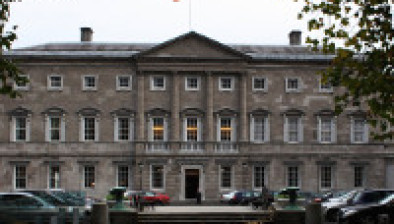High Court: IPAT decision quashed following failure to consider relevant country of origin information

The High Court has granted an order of certiorari in respect of an IPAT decision refusing refugee status and subsidiary protection to a citizen of Sierra Leone who claimed that he would likely be imprisoned, tortured and killed if returned to his home country.

About this case:
- Citation:[2024] IEHC 12
- Judgment:
- Court:High Court
- Judge:Mr Justice Cian Ferriter
Delivering judgment for the High Court, Mr Justice Cian Ferriter warned that “it behoved the Tribunal, at a minimum, to engage in some analysis of the material put before it by the applicant which supported the view that even ordinary members of APC… faced the risk of violence, arbitrary detention or other persecution or serious harm in Sierra Leone by virtue of their political affiliation and to explain why it was not accepting this COI, or why it preferred other COI”.
Background
The applicant, a 44-year-old Muslim man from Sierra Leone, applied to the International Protection Office (IPO) for protection on the basis that he had a well-founded fear of persecution if returned to Sierra Leone due to his position as a secretary and youth leader with the All People’s Congress (APC), an opposition political party.
The applicant also claimed that he served as a bodyguard to the former First Lady of Sierra Leone and had travelled to the UK with her on a six-month visa in 2017 where he overstayed and did not claim asylum, instead travelling to Ireland in August 2020 and making his application for protection on 10 August 2020.
He described a conflict that arose between supporters of his party and a rival party in the run-up to the 2018 general election, following which APC lost the election and its supporters began to be harassed without any intervention by the authorities. The applicant also stated that his home was targeted and that he was threatened with violence, with his late wife advising him not to come home as his life was at risk.
Believing that the police in Sierra Leone had accused him of inciting violence at the election despite the fact that he was in the UK at that time, the applicant feared that he would be tortured and killed if he returned. The applicant reported that his wife died in 2020 from complications arising from injuries inflicted upon her by members of the rival political party.
The IPO refused his application on 3 June 2022, rejecting his assertions that he was a youth leader and organiser within the APC, that he was accused of inciting violence and that his home was vandalised. The applicant appealed the recommendation of the IPO, attending an in-person hearing with the International Protection Appeals Tribunal on 22 November 2022.
On 18 January 2023, the Tribunal declined to declare the applicant as a refugee and refused him subsidiary protection status, finding that the newspaper article tendered in support of his claim that the police accused him of inciting violence was of “dubious provenance” and that his failure to seek protection in the UK, along with a number of inconsistencies and improbabilities presented to the Tribunal, adversely affected the credibility of his claim.
The applicant sought an order of certiorari quashing the Tribunal’s decision, challenging the finding on his credibility and its approach to assessing the information concerning his country of origin.
The High Court
Mr Justice Ferriter began his analysis with a consideration of the Tribunal’s finding that it could not attach any weight to the newspaper article. Counsel for the applicant suggested that the rejection of the article based upon its physical appearance was unusual, irrational and that inadequate reasons for the rejection were given, relying upon the principles set out in I.R v Minister for Justice, Equality and Law Reform and Another [2009] IEHC 353.
The court disagreed, finding that the Tribunal had set out adequate and rational reasons for its conclusion including that the atypical physical appearance of the newspaper itself and the alleged timing of the article’s release raised questions as to its authenticity.
Mr Justice Ferriter then turned to the applicant’s challenge to the alleged failure of the Tribunal to consider his country of origin information, noting his contentions that the Tribunal erred fundamentally in its assessment and application of his country of origin information and that this failure vitiated its reasoning more generally.
The applicant relied upon K. v. IPAT [2023] IEHC 6 for the proposition that s.28(4) of the International Protection Act 2015 requires the Tribunal’s assessment to take into account all relevant facts relating to the country of origin when assessing credibility, when fact-finding and at the time of decision-making.
The court examined the decision, finding that the Tribunal’s use of the country of origin information in determining whether certain events happened coincided with the authorities and that the Tribunal was not precluded “from thereafter determining that material aspects of the applicant’s story were not in fact credible notwithstanding that those aspects may not in themselves have been contrary to available COI”.
The judge proceeded to consider the applicant’s contention that the Tribunal erred fundamentally in finding that there was nothing in his country of origin information to suggest that he would be targeted by virtue of his APC membership if returned to Sierra Leone, highlighting that the section of the Tribunal’s decision relating to torture or inhuman or degrading treatment referenced only one piece of country of origin information which did not appear to support a risk of arbitrary arrest and detention simply by virtue of APC membership.
The court considered that “a conflict in the COI before the Tribunal in that the applicant had in the two sets of written submissions that were before the Tribunal pointed to various pieces of COI which suggested that supporters or members simpliciter of the APC had been targeted with violence during the 2018 elections in Sierra Leone and since then”.
In particular, the court emphasised that the applicant’s submissions referenced a 2018 article which described “houses and properties belonging to opposition supporters [i.e. APC supporters] being burned down and destroyed and physical attacks and victimisation of ‘peaceful individuals or groups that are believed to be supporters of the APC party’”.
Mr Justice Ferriter noted the respondents’ assertion that the material related only to potential persecution of APC politicians or activists, finding that he could not “safely conclude that this is so on the basis of the material before the Tribunal… in my view, it behoved the Tribunal, at a minimum, to engage in some analysis of the material put before it by the applicant which supported the view that even ordinary members of APC… faced the risk of violence, arbitrary detention or other persecution or serious harm in Sierra Leone by virtue of their political affiliation and to explain why it was not accepting this COI, or why it preferred other COI, if that was in fact the Tribunal’s position”.
Conclusion
Accordingly, the court quashed the decision and remitted the matter to the Tribunal for fresh consideration.
M.B. v International Protection Appeals Tribunal & Anor [2024] IEHC 12









